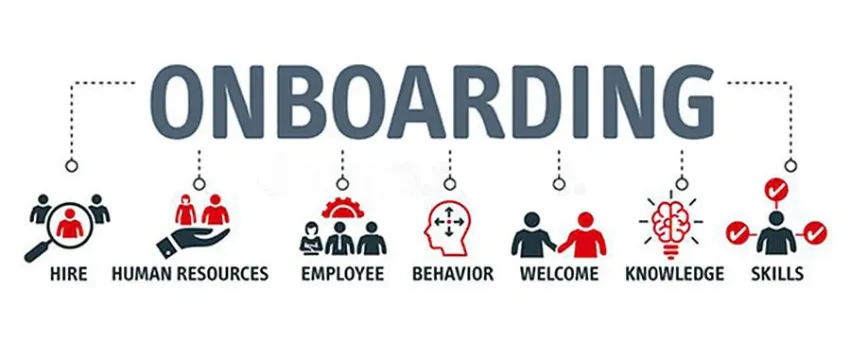
Menu

Menu

Every organization is girding up its loins during this unprecedented crisis to exploit potential as much as possible. In this context, human resource management (HRM) in SMEs plays a crucial role in achieving company goals. Notably, HRM varies significantly between small, medium, and large enterprises. This variation depends on several factors, including the size of the organization, the recruiting phase and method, available resources, and shared responsibilities.
For instance, processes in large corporations are generally more straightforward since they typically have dedicated departments for every operation. In contrast, SMEs face unique challenges in handling human resource management. Limited resources must manage numerous HR tasks, including administrative duties, payroll, training, and recruitment.
Recognizing the threat posed by these HR challenges, HRBluSky has developed a comprehensive and effective human resource management solution specifically for SMEs. This innovative workforce management system was built to address real-time scenarios, enabling organizations to better utilize vital assets such as time and resources.

Many pieces of evidence indicate that a better onboarding process increases the likelihood of retaining employees within an organization. In a region like the UAE, numerous procedures exist for bringing in people commercially, making compliance with various regulations essential. This includes facilitating recruitment, securing visas, obtaining attested original documents, creating Emirates IDs, adding employees to company insurance plans, conducting health checkups, and securing work permits. All of this is required for just one employee.
In small to medium-sized enterprises (SMEs), mistakes can significantly impact the learning curve. Errors can occur from the hiring stage, leading to missed follow-ups and inefficiencies. Therefore, the best human resource management practice for SMEs is to track information—from basic details to payroll management updates—on a single platform. This approach not only saves time and resources but also minimizes errors.
The UAE boasts a robust structure in human resource management. SMEs that implement well-documented processes can gain a competitive edge in productivity. Furthermore, during the phase of improving organizational performance, the UAE has fostered emerging patterns in human resource management systems applicable to organizations of all sizes. When HR processes are designed to align with business strategies, comply with UAE legislative rules, and fit into administrative frameworks, they become crucial for small and medium businesses to manage effectively.
Consequently, a product like HRBluSky offers end-to-end human resource management practices that meet all the organizational needs of SMEs in the best possible way.
A report from the e-learning industry reveals that nearly 28% of employees are unsure about their role responsibilities. To address this issue, it is crucial to provide every employee with a clear progression roadmap, along with effective communication from their first day on the job. Keeping employees informed about their progression status and regularly reminding them of their expectations is one of the best ways to alleviate stress and enable organized work.
Furthermore, fostering quality work relationships contributes to building a strong company culture. This, in turn, promotes better collaboration between teams. A cooperative team structure, combined with a focus on goals in a real-time environment, positively impacts job satisfaction and company loyalty. Having a “buddy” at work is vital for anyone aiming to thrive within the organization. Therefore, every new hire should be encouraged to use a platform to communicate and share their values with co-workers.
However, SMEs often face challenges in their human resource management practices. One major hurdle is defining a forward-thinking vision that aligns with current organizational objectives and targets. Once established, it is essential to build a strategy that all stakeholders, from investors to end users, can engage with and contribute to. Industry experts in human resources play a pivotal role by educating relevant stakeholders and fostering buy-in for the investment of time and resources as digitized officials. Consequently, the demand for head-trackers in the Middle East is rising rapidly, and with it comes increased rewards for top management, creating heightened competition for talent.
Human resource management practices in SMEs and startups often struggle to compete with established firms regarding attractive compensation packages and benefits. Consequently, startup entrepreneurs and SME owners frequently highlight the challenges of attracting and retaining new talent as significant obstacles to growth. Additionally, rapidly growing digital organizations face an increasing need to build more effective and adaptable structures, leading to growing complexity in product manager roles.
According to an article published in Entrepreneur Middle East, the demand for these roles has surged by around 20% in the past year, while salary increases have averaged nearly 10% during the same period. This trend underscores the competitive landscape for talent, which is often found within the local or regional market.
Looking ahead to the next two to four years, it is likely that the demand for these skills will continue to rise rapidly, accompanied by evolving compensation mechanisms. Specifically, fields such as data science and analytics, which barely existed in the Middle East five years ago, are now among the most sought-after skills across various industries. Notably, this sector experiences more cross-industry mobility than any other. For instance, an investigation leader could transition from banking to retail and still be in high demand from educational providers.
While salary increases may not have been as pronounced in the last two years, the demand for expertise in data management remains significant, and the complexity of these requirements continues to grow.

When it comes to recruiting workers for a private venture, mistakes are all too common. For instance, poorly defined job descriptions, inefficient hiring processes, and the lack of a structured onboarding procedure can significantly hinder business success. Therefore, the solution is quite straightforward: allocate sufficient time to the recruitment process. Additionally, creating a consistent interview process and being precise in job descriptions is crucial.
It’s important to note that recruitment is not solely about finding a candidate who fits the organizational culture or merely meeting all the technical skill requirements; rather, it involves a blend of both perspectives. In particular, SMEs need to dedicate adequate time to the onboarding process to ensure it is executed in a smart and efficient manner.
Moreover, the HR department must focus on proactive, long-term talent acquisition instead of merely rushing through the hiring process to fill vacancies. By doing so, they can avoid being bogged down by an endless cycle of administrative tasks, ultimately leading to a more effective recruitment strategy.
It is a straightforward yet tried-and-true way of thinking: investing in your employees means investing in your business. Indeed, we see this principle reiterated time and again. However, HR directors are often overwhelmed with paperwork, leaving little room for a successful onboarding process or the implementation of improvement programs. Therefore, SMEs must ensure that new recruits are equipped with the right tools while current employees are given opportunities to grow.
Consequently, this focus on employee development should be a central pillar of the human resource strategy. Ultimately, by prioritizing the needs of both new and existing employees, SMEs can foster a more engaged and productive workforce.
Like each country, the UAE has labor regulations that govern organizations operating within its borders. For instance, these regulations encompass fundamental HR functions, such as updating employee contracts in response to legal changes and providing employees with contracts in a language they understand. As a result, these are challenges that HR departments, entrepreneurs, and office managers in the UAE face daily.
Moreover, being an entrepreneur myself, I understand the importance of remaining compliant and informed at every stage of the HR cycle. Therefore, it is crucial for businesses to stay abreast of these regulations, as non-compliance can lead to severe penalties and operational disruptions. Additionally, organizations must regularly review their HR policies to ensure alignment with current laws, thereby fostering a culture of compliance within the workplace.
In any country, implementing a long-term human resource strategy faces several hurdles, including population imbalance, lack of innovation in SME human resource management, and insufficient gender diversification in the workplace. To tackle these challenges, HR departments must maintain a strategic focus aligned with national human resource goals. Moreover, leveraging technology-related solutions for workforce management proves convenient and highly effective.
The entire business cycle revolves around two major components: the customer experience cycle and the employee experience cycle. Importantly, the customer experience lifecycle relies on the employee experience lifecycle. Indeed, the employee experience during onboarding is a significant factor in employee retention.
Furthermore, managing data has become a journey that organizations navigate, moving beyond merely crunching numbers. Notably, the number of roles in data management (business-facing roles) doubled in 2019 compared to 2017 in this region. Consequently, organizations are compelled to look overseas for talent that can engage with the business to build and enforce an effective data governance and quality strategy.

As a result, salaries in this field have risen by an average of 20% over the last two years due to increasing demands, global competition, and a scarcity of available talent. In a region like the UAE, we at HRBluSky understand the challenges faced by SMEs. Therefore, we have created a handy and efficient tool to address all your business needs, including employment visas, salary processing, employee travel, employee devices, all types of employee insurance, record management, WPS file generation, document expiry alerts, and facial recognition attendance. Thus, give it a free try by signing up here!
Alignment
Article
Audit
Automation
Benefits
Candidate
Communication
Compliance
Digitalisation
Digital Technology
Diversity
Emirates Id Application
Employee Experience
ESS
Feedback
Health and Safety
HRMS
HR Strategy
HR System UAE
Human Resource Management
Human Resource Management Systems
Job Roles
Learning and Development
Onboarding
Outsource
Payroll
Payroll Management System
Payroll Processing
Performance
Performance Management
Personalisation
Recruit
Recruiting
Recruitment
Remote Working
Rewards
Security
Service Providers
Skills
Smart
Survey
Virtual
Visa Cancellation
Work Environment
Workforce
© 2026 Pruvity HR Solutions Pvt Ltd, Madurai, India